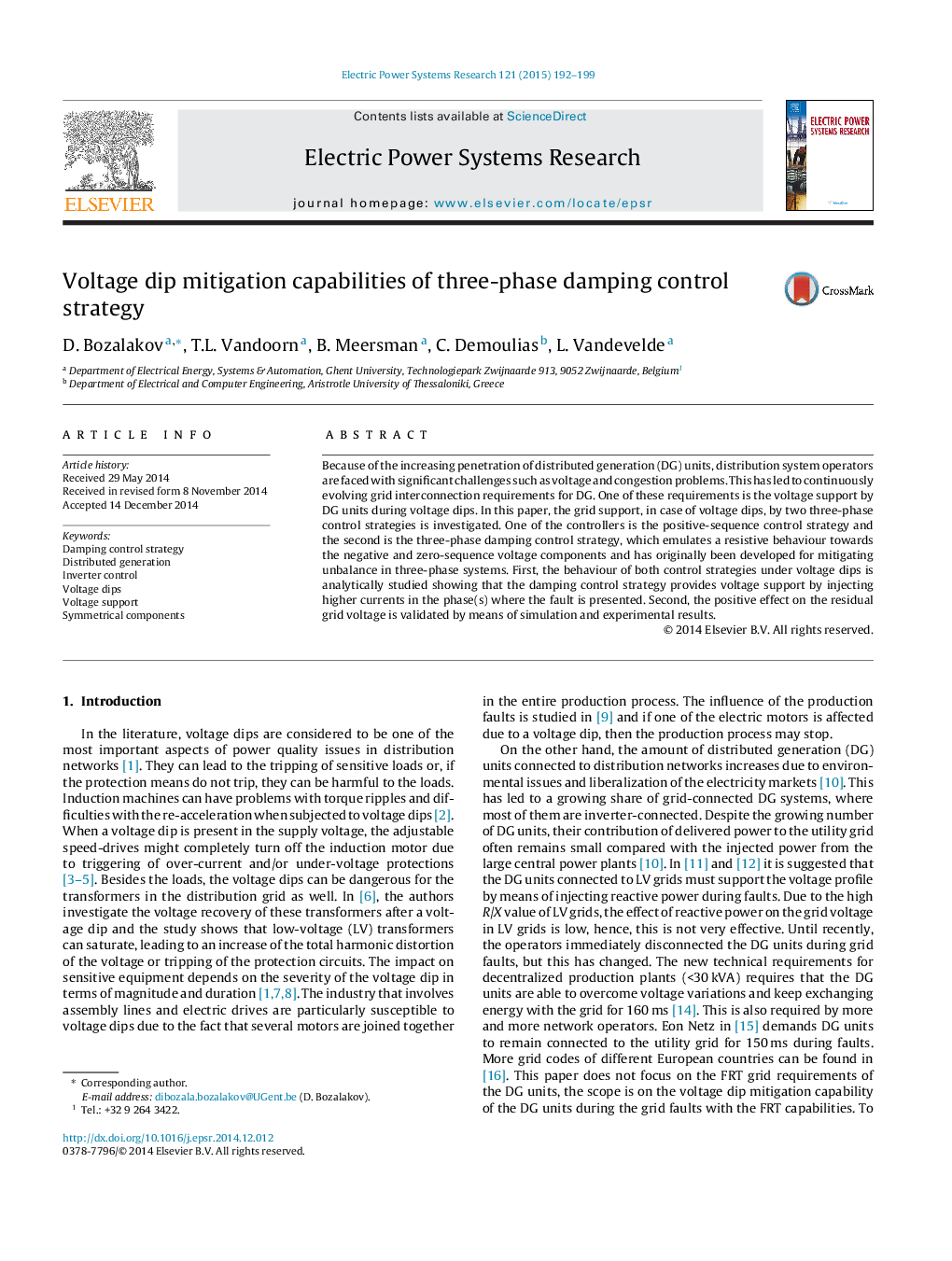| Article ID | Journal | Published Year | Pages | File Type |
|---|---|---|---|---|
| 7112847 | Electric Power Systems Research | 2015 | 8 Pages |
Abstract
Because of the increasing penetration of distributed generation (DG) units, distribution system operators are faced with significant challenges such as voltage and congestion problems. This has led to continuously evolving grid interconnection requirements for DG. One of these requirements is the voltage support by DG units during voltage dips. In this paper, the grid support, in case of voltage dips, by two three-phase control strategies is investigated. One of the controllers is the positive-sequence control strategy and the second is the three-phase damping control strategy, which emulates a resistive behaviour towards the negative and zero-sequence voltage components and has originally been developed for mitigating unbalance in three-phase systems. First, the behaviour of both control strategies under voltage dips is analytically studied showing that the damping control strategy provides voltage support by injecting higher currents in the phase(s) where the fault is presented. Second, the positive effect on the residual grid voltage is validated by means of simulation and experimental results.
Related Topics
Physical Sciences and Engineering
Energy
Energy Engineering and Power Technology
Authors
D. Bozalakov, T.L. Vandoorn, B. Meersman, C. Demoulias, L. Vandevelde,
